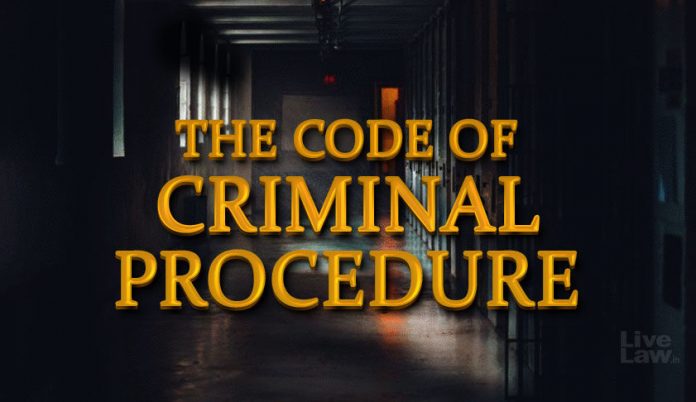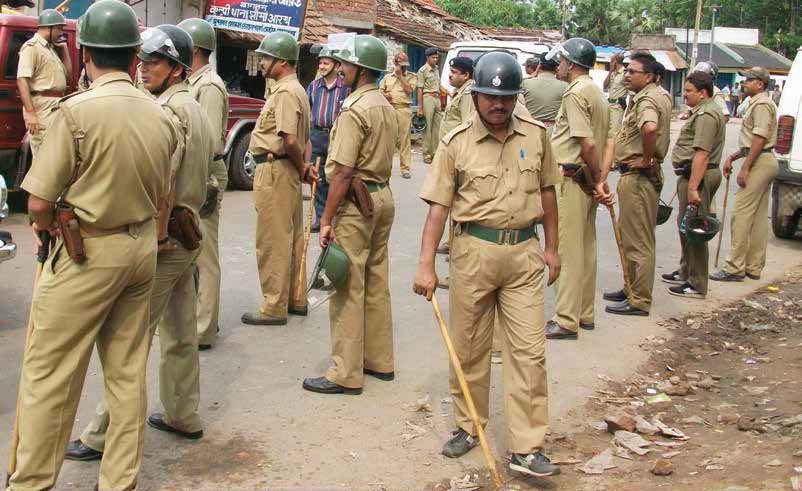This article is written by Tushar Singh Samota, a law student from the University Five Year Law College, Rajasthan University. The article discusses the concept of the examination of a witness by police, which is mentioned in Section 161 of the CrPC. The discussion will be supported by various judicial pronouncements.
This article has been published by Sneha Mahawar.
Table of Contents
Introduction
The examination of witnesses by police under the provisions of the Code of Criminal Procedure, 1973 (CrPC) is an important stage in settling cases and punishing criminals. During a witness examination, the police take the person’s statement to proceed with the investigation under the provisions of the Criminal Procedure Code, 1973. However, the word ‘statement’ is not defined under the CrPC. According to the Encyclopedia, a statement is defined as a proclamation or explicit expression of anything in speaking or writing.
Section 161 of the CrPC deals with the examination of witnesses by the police, and this provision allows the police or gives them authority to interrogate the witnesses whenever they need to record the statements of the witnesses. The major goal of this Section is to present the evidence before the court throughout the trial. This information is also valuable to the court in formulating charges against the perpetrator.
Witness
Before we go into the details of the examination of a witness, let us first define the term ‘witness’. A witness is a person who sees an event happening, especially a crime or an accident, or who testifies under oath in a legal trial. The term ‘witness’ itself reveals the meaning: any individual who observed the crime and has firsthand knowledge of any occurrence in a criminal case, which assists the lawyer in testifying the evidence as well as the courts in delivering judgments. During a criminal trial, a summons is frequently issued to the witness to appear in court and make her statement. Witnesses are also grouped into several kinds based on their function in providing information about an event that occurred in a criminal case. As a result, the law allows for a total of three types of witnesses.
Eyewitness
An eyewitness is a witness who witnessed the alleged crime. This witness is frequently seen as untrustworthy in comparison to circumstantial evidence, which is more authentic and dependable. However, if numerous persons observed the incident with their eyes, lawyers will perceive the recurrence of the same event by different witnesses.
Expert witness
An expert witness is a person who has excellent knowledge and is knowledgeable in a certain subject, which aids in witnessing the evidence gathered. These individuals are regarded as superior to regular witnesses since they are specialised in a specific field. These individuals include forensic specialists, ballistic experts, psychiatrists, and others.
Character witness
A character witness is a witness who, under oath, affirms the excellent character or reputation of a person in the society in which he lives, and these sorts of witnesses are primarily there to recollect and assert that person’s positive characteristics and ethics in front of the court. These witnesses are only summoned and recorded when the defendant’s reputation and characteristics are brought into question.
But one aspect is missing, i.e., trustworthiness in all sorts of witnesses. There is a lot of disagreement about the trustworthiness of witnesses in criminal cases. Many times, witnesses make misleading statements, resulting in incorrect judgments. This is a major issue not only in India but also in other countries.
Statements recorded under Section 161 CrPC
Interrogation is a critical component of the inquiry. The authority to conduct an inquiry is fundamentally one of the first stages toward imparting justice, and such power becomes increasingly vital when the offence is serious in such circumstances. Oral statements supplied by witnesses, if properly documented while adhering to due process of law, might go a long way toward assisting prosecutions in obtaining convictions.
On the other hand, failure to follow established stages and procedures can be damaging to the victim/informant since the evidential value of the statement is decreased, which in turn will make the defence counsel’s case stronger. When an investigation begins, one of the first things an investigating officer must do is contact the persons who appear to be familiar with the facts and circumstances of the case, as provided under Section 160 of the CrPC. According to Section 160(1), an investigative officer may order any individual to appear before him if the following circumstances are met:
- The order demanding the person’s presence must be in writing.
- The individual looks to be familiar with the facts and circumstances of the case; and
- The summons issued under Section 160 of the Criminal Procedure Code should contain the name, rank, and address of the Investigating Officer and the particulars of the First Information Report (FIR) and the offence.
- The individual summoned for investigation is within the jurisdiction of the investigating police officer’s police station or any neighboring police station.
- In line with the rules, the police officer must also pay this person’s reasonable expenses when they appear at a site other than their house.
But this Section’s proviso states that men under the age of 15 and females shall not be required to visit the police station, and the examination and recording of their statements may take place at their house. This provision is designed to provide specific protection to children and women from the potential humiliations and inconveniences caused by the abuse of police authority under Section 160(1).
On a simple reading of this Section, it is evident that this Section gives the police officer broad authority to record statements from anybody familiar with the facts and circumstances of the matter under investigation. Such authority will be rendered ineffective unless it is backed up by some severe measures. This gap has been filled by making it a legal duty for the person summoned to comply with such a notification unless they are exempted from it by the Section’s proviso. Failure to comply with such a public servant’s command is punishable by one-month imprisonment, a fine, or both under Section 174 of the Indian Penal Code, 1860 (IPC).
Once the attendance notice has been delivered and the witness has arrived at the police station, the investigating officer can conduct an oral examination under Section 161. According to this Section, the witness is obligated to answer these questions truthfully. Refusing to answer, willful omission, and providing false information are punishable under Sections 179, 202, and 203 of the IPC.
Examination of witnesses under this Section
The goal of Section 161 is to acquire evidence that can subsequently be used in court. In the event of a trial before a court of the session or a warrant-case trial, a charge may be filed against the accused based on the statement recorded by the police under Section 161. This Section gives the police the authority to question witnesses during an investigation.
Section 161(1) allows for oral examination of anybody who is supposed to be familiar with the facts and circumstances of the case. A police officer examines the person in this segment. Section 161 (1) uses the phrase ‘any person’ to encompass a person who may be accused of the offence as well as suspected. In the case of Pakala Narayan Swami v. Emperor (1939), it was determined that the term ‘persons’ encompassed any person who may be accused subsequently.
Section 161(2) binds a person who is interrogated by police during an inquiry to answer all questions honestly, but it also shields the person from answering questions that would subsequently lead to the person’s incrimination. It was held in the case of Nandidni Satpathy v. P. L. Dani (1978) that we cannot force or compel a person accused of an infraction to submit or make a statement that is against himself. The individual is free to keep silent. However, it is critical to safeguard such a person since a person is presumed innocent unless proven guilty.
This subsection provides a shield against self-incrimination, which is recognised as a fundamental right under Article 20(3) of the Indian Constitution. According to the aforementioned Article, no person accused of a crime can be forced to testify against himself. When presented with damning questions, the accused may remain silent or refuse to answer.
Section 161(3) requires that witness testimony under Section 161 be recorded in the first person and not in an indirect form of speech. An oath or affirmation is not needed during a witness examination under this Section. It also forbids the preparation of a synopsis of a statement recorded and provides that the statements made under this subsection may be captured using audio-video technological methods. Apart from this, the statement given by a woman must be documented by a woman police officer or any female officer.
In Sewaki v. State of Himachal Pradesh (1981), it was determined that statements made by investigating officers under Section 161 are neither recorded under oath nor are they subject to cross-examination as required by Section 145 of the Evidence Act, 1872. As a result, according to the law of evidence, these statements are not substantive pieces of evidence because they do not provide proof of the facts stated in them.
Investigation of Crime by the Police
There are several legal processes before the start of a court proceeding, one of them being an investigation by the police. In H.N. Rishbud and Inder Singh v. State of Delhi (1954), the honourable Supreme Court of India decided that a criminal police inquiry consisted of the following steps:
- Going to the crime scene.
- Investigation of the case’s facts.
- Detection and arrest of the alleged perpetrator.
- Gathering of evidence.
- Determining whether it is necessary to present the accused before a Magistrate for trial and if so, taking all required procedures by compiling a charge sheet by Section 173, CrPC, 1973.
The evidentiary value of police statements
Essentially, the witness signature on a statement is not necessary under Section 161 of the CrPC because this practice is prohibited under Section 162 of the CrPC. A violation of this Section may reduce the credibility of witnesses’ evidence when they appear in court. It is, however, not the law that anytime a person’s signature is acquired in a statement recorded during an inquiry, the statement shall be rejected. However, in such a case, the court must exercise caution in evaluating the evidence that the witness who made the forged statement may provide in court.
In the ruling of State of Rajasthan v. Teja Ram and others (1999), the Apex Court noted that Section 162 of the Criminal Procedure Code does not stipulate that a witness’s testimony in court is rendered inadmissible. Further, if it is discovered that the witness signed the statement of witnesses recorded during the investigation at the officer’s request, it simply cautions the court and may need a thorough examination of the facts.
Delay in the recording of statements
Witness statements must be acquired as quickly as possible; nevertheless, a delay of a few hours in recording the statements does not constitute a major infirmity. There must not be room for suspicion that the delay was intentional on the part of the police while, allowing him to put up a case of his own choosing. In the case of the State of NCT of Delhi v. Ravikant Sharma (2007), the court stated that any direction to give the ‘gist’ of such statements was unsustainable since such statements of witnesses recorded during the inquiry did not contain the interpretation of the Investigation Officer.
The investigating officer cannot compel the accused to answer all questions if the answers requested have a chance of exposing him to guilt in another charge either actual or imminent, even though the inquiry is not related to that accused. When there is a discrepancy between a statement provided to the police and evidence presented in court, the former statement may be used to contradict the latter, as decided in the case of P. Ailamma v. T. Zedson (1988). In an omission case, i.e., a skip or slip that signifies exclusion or leaving out, the court will determine whether it is a substantial omission or not, and if so, it will be referred to as a material contradiction.
Amendments to Section 161 CrPC
The major changes following the amendments are as follows:
- The Criminal Procedure (Amendment) Act, of 2008, went into force on December 31, 2009. This Amendment included a proviso in Section 161(3) which stipulates that the ‘statement shall be recorded by audio-video electronic means’.
- The Criminal Law (Amendment) Act, 2013, which took effect on February 3, 2013, was added in Section 161(3) that in a certain category of crimes against women or children under the Indian Penal Code, such as Section 354, Section 376, and so on, a statement must be recorded by a lady police officer or lady officer.
Conclusion
Though there are certain flaws in the recording of the Investigating Officer’s remarks, it nonetheless plays an important part in the commencement of court proceedings. The fundamental goal of Section 161 of the Criminal Procedure Code is to safeguard the accused from both overzealous police personnel and untrustworthy witnesses. So there should be stronger regulation and supervision authorities that would monitor the police during the examination of witnesses. This will almost certainly lead to a better means of scrutinising witnesses without police violence and rudeness, and this step will very certainly lead to voluntary witnessing in the near future.
Thus, we can say that the police’s ability to respond quickly and impartially is critical in this situation.
Frequently asked questions (FAQ)
Can the police submit a chargesheet in the absence of evidence?
When the police have completed their investigation and discovered sufficient evidence to continue with a criminal prosecution, they file a charge sheet. However, if no evidence of a crime is uncovered following an investigation, they will recommend dismissing the case by submitting a closure report to the Magistrate.
What is the evidentiary value of a statement made under Section 161?
The statements recorded by the police under Section 161 of the Criminal Procedure Code are not admissible in court. They can be utilised by the defence to refute the prosecution’s witnesses. However, if the prosecution witness becomes hostile, the Public Prosecutor can, with the consent of the court, cross-examine the witness and use the statements made by the witness under Section 161 to prove the inconsistency in his testimony.
References
- https://www.livelaw.in/tags/section-161-crpc
- https://www.leadindia.law/blog/en/recording-of-statement-under-section-161-of-crpc/
- https://primelegal.in/2021/02/19/statements-made-under-section-161-crpc-inadmissible-as-evidence-to-refuse-bail-high-court-of-delhi/
- https://devgan.in/crpc/section/161/
Students of Lawsikho courses regularly produce writing assignments and work on practical exercises as a part of their coursework and develop themselves in real-life practical skills.
LawSikho has created a telegram group for exchanging legal knowledge, referrals, and various opportunities. You can click on this link and join:
Follow us on Instagram and subscribe to our YouTube channel for more amazing legal content.
 Serato DJ Crack 2025Serato DJ PRO Crack
Serato DJ Crack 2025Serato DJ PRO Crack













 Allow notifications
Allow notifications


